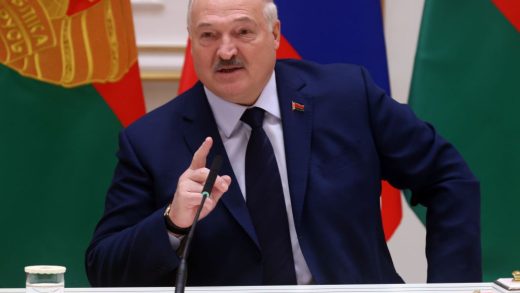Mnangagwa allies push for a term extension to 2030 as ZANU-PF factions split and opposition promises a legal fight.
Published On 18 Oct 2025
Zimbabwe’s governing ZANU-PF has said it will begin a process to extend President Emmerson Mnangagwa’s term by two years, potentially keeping him in power until 2030.
The plan was endorsed on Saturday at the movement’s annual conference in the eastern city of Mutare, where delegates instructed the government to begin drafting legislation to amend the Constitution, Justice Minister and ZANU-PF legal secretary Ziyambi Ziyambi said.
Recommended Stories
list of 3 itemsend of list
Mnangagwa, 83, is constitutionally required to leave office in 2028 after serving two elected terms. Any change would require a constitutional amendment – and potentially referendums – legal experts say.
Delegates erupted in applause after the motion passed, reinforcing ZANU-PF’s pattern of securitised rule since independence in 1980. The party controls parliament, giving it significant leverage, though some insiders warn that a legal challenge would be likely.
Mnangagwa has previously insisted he is a “constitutionalist” with no interest in clinging to power. But loyalists have quietly pushed for a prolonged stay since last year’s disputed election, while rivals inside the party – aligned with Vice President Constantino Chiwenga – are openly resisting an extension.
Blessed Geza, a veteran fighter from the liberation war and a Chiwenga ally, has been using YouTube livestreams to condemn the push, drawing thousands of viewers. Calls for mass protests have gained little traction amid a heavy police deployment in Harare and other cities.
The president made no mention of the extension during his closing remarks at the conference. Chiwenga has not commented on Mnangagwa’s term extension bid or the protests.
Dire economic situation
Mnangagwa came to power in 2017 amid promises of democratic and economic reforms following the toppling of the longtime President Robert Mugabe.
Mnangagwa has presided over a dire economic collapse marked by hyperinflation, mass unemployment, and allegations of corruption. Critics accuse ZANU-PF of crushing dissent, weakening the judiciary, and turning elections into a managed ritual rather than a democratic contest.
Legal opposition figures have warned that any attempt to rewrite the Constitution will face resistance in court.
“We will defend the Constitution against its capture and manipulation to advance a dangerous unconstitutional anti-people agenda,” opposition lawyer Tendai Biti said in a statement on X.
Ten elderly activists – most in their 60s and 70s – were arrested in Harare on Friday for allegedly planning a protest demanding Mnangagwa’s resignation.
They were charged with attempting to incite “public violence” and remain in custody pending a bail hearing on Monday. Earlier this year, authorities detained nearly 100 young people in similar circumstances.
The renewed manoeuvring has exposed an accelerating power struggle inside ZANU-PF. One faction wants Mnangagwa to remain until 2030; another is preparing the ground for Chiwenga, the former army general who helped topple Robert Mugabe in the 2017 coup.

